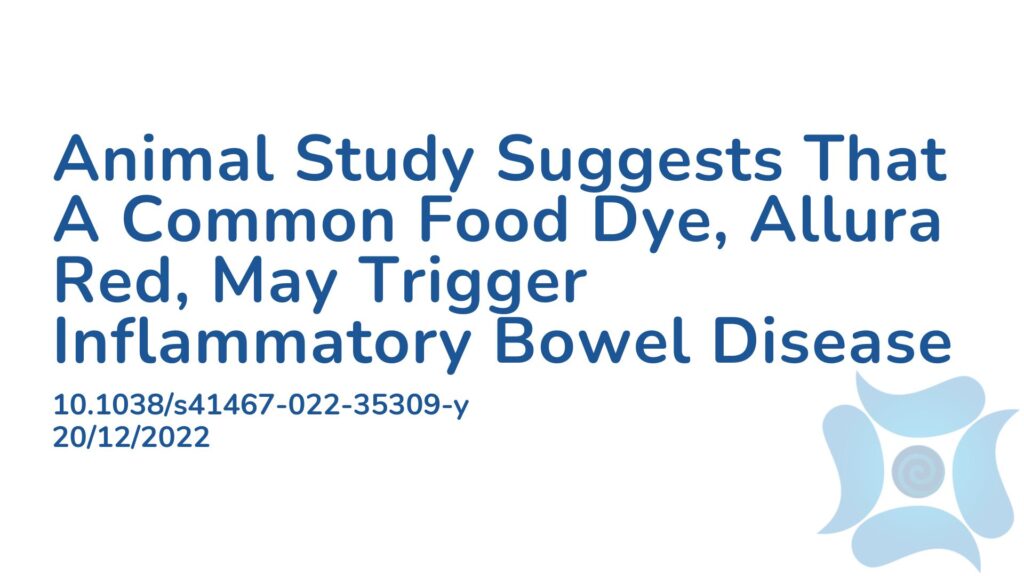Summary:
An animal study that has looked into continued exposure to Allura Red, a common food dye, has found that it may trigger inflammatory bowel diseases such as Crohn’s disease and ulcerative colitis and harm the gastrointestinal tract. The dye has been shown to disrupt gut barrier function and cause inflammation. The use of synthetic colorants such as Allura Red in dietary products has substantially increased over the past 50 years and can be found in many commonly consumed products aimed at children, for example cereals, sweets and beverages. Though it remains unclear whether the effects of Allura Red is similar in humans, the results of this study reveal that chronic long-term exposure to this food dye promotes inflammation in the gut and can trigger inflammatory bowel disease.
Abstract:
Chemicals in food are widely used leading to significant human exposure. Allura Red AC (AR) is a highly common synthetic colorant; however, little is known about its impact on colitis. Here, we show chronic exposure of AR at a dose found in commonly consumed dietary products exacerbates experimental models of colitis in mice. While intermittent exposure is more akin to a typical human exposure, intermittent exposure to AR in mice for 12 weeks, does not influence susceptibility to colitis. However, exposure to AR during early life primes mice to heightened susceptibility to colitis. In addition, chronic exposure to AR induces mild colitis, which is associated with elevated colonic serotonin (5-hydroxytryptamine; 5-HT) levels and impairment of the epithelial barrier function via myosin light chain kinase (MLCK). Importantly, chronic exposure to AR does not influence colitis susceptibility in mice lacking tryptophan hydroxylase 1 (TPH1), the rate limiting enzyme for 5-HT biosynthesis. Cecal transfer of the perturbed gut microbiota by AR exposure worsens colitis severity in the recipient germ-free (GF) mice. Furthermore, chronic AR exposure elevates colonic 5-HT levels in naïve GF mice. Though it remains unknown whether AR has similar effects in humans, our study reveals that chronic long-term exposure to a common synthetic colorant promotes experimental colitis via colonic 5-HT in gut microbiota-dependent and -independent pathway in mice.
Article Publication Date: 20/12/2022
DOI: 10.1038/s41467-022-35309-y



